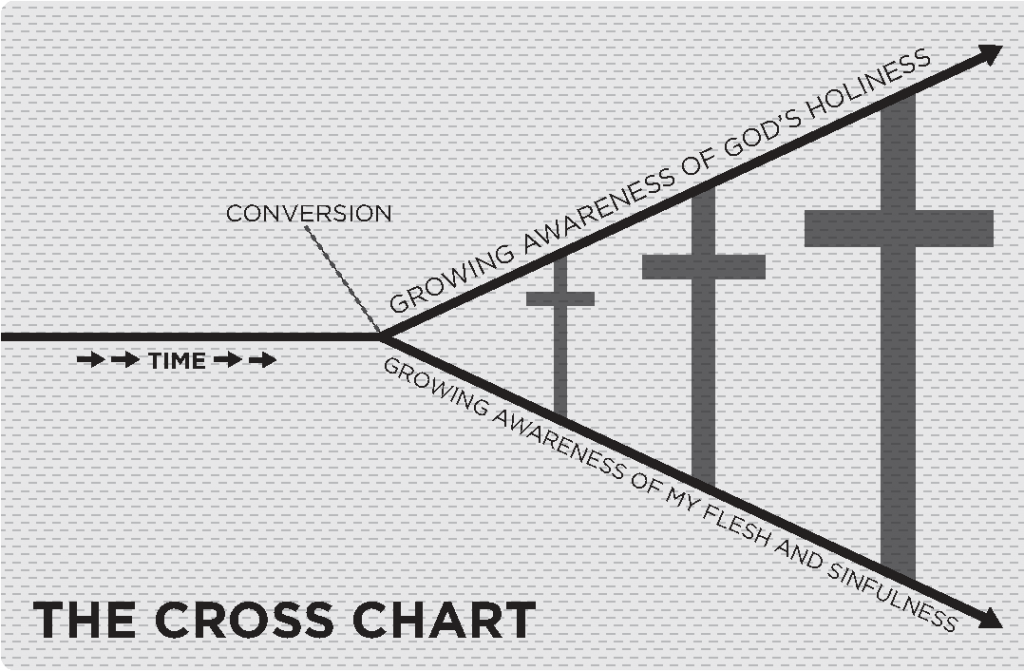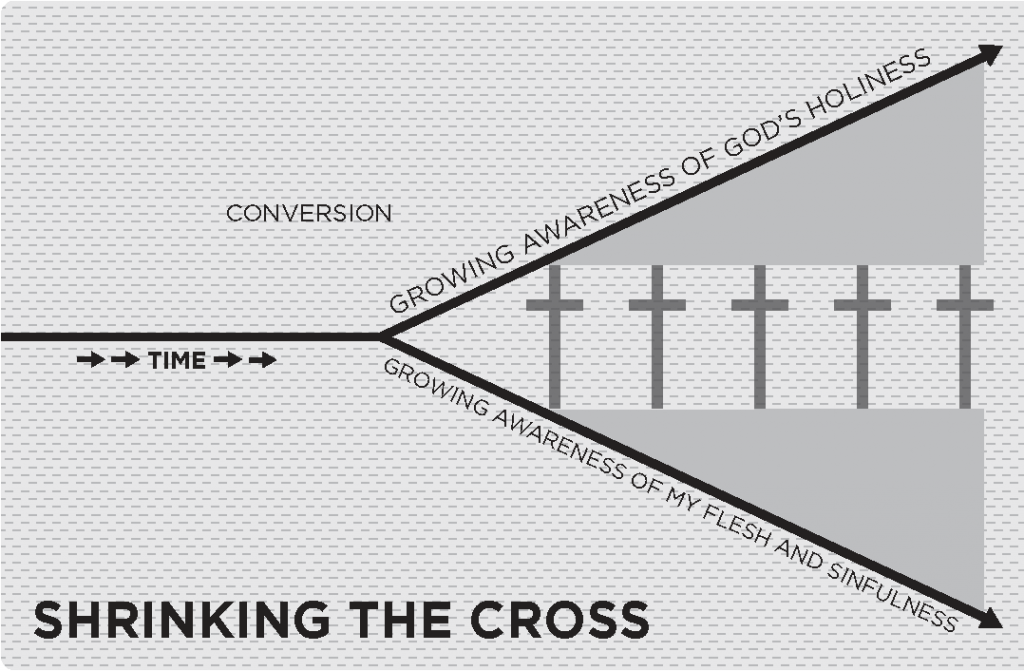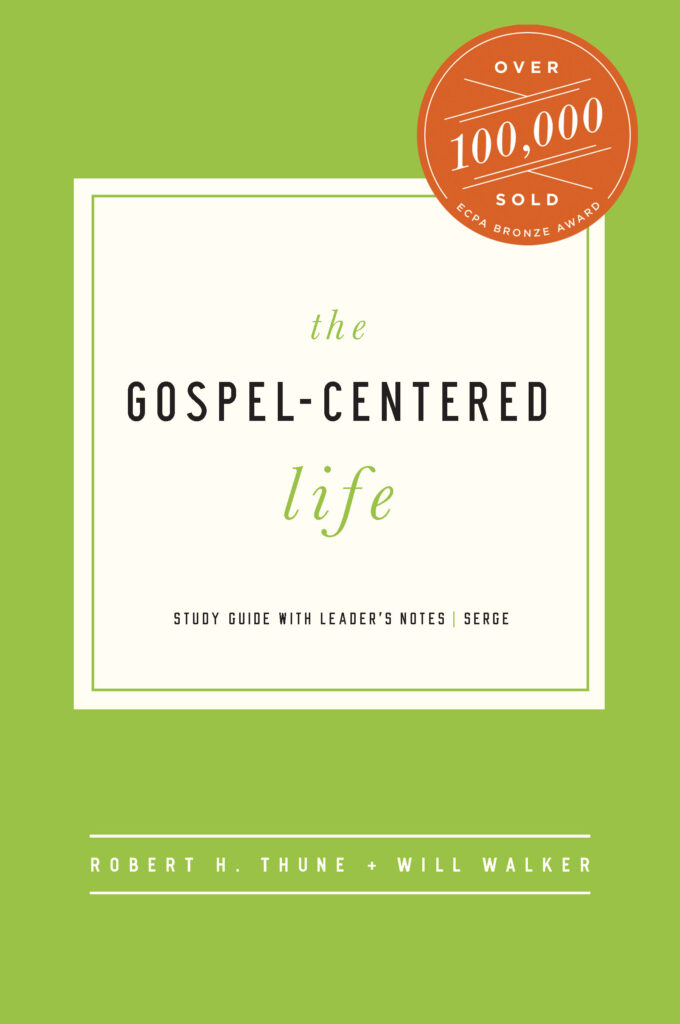“The gospel” is a phrase that Christians often use without fully understanding its significance. We speak the language of the gospel, but we rarely apply the gospel to every aspect of our lives. Yet this is exactly what God wants for us. The gospel is nothing less than “the power of God” (Romans 1:16). In Colossians 1:6, the apostle Paul commends the Colossian church because the gospel has been “bearing fruit and growing…among [them] since the day [they] heard it.” The apostle Peter teaches that a lack of ongoing transformation in our lives comes from forgetting what God has done for us in the gospel (2 Peter 1:3–9). If we are to grow into maturity in Christ, we must deepen and enlarge our understanding of the gospel as God’s appointed means for personal and communal transformation.
Many Christians live with a truncated view of the gospel. We see the gospel as the “door,” the way in, the entrance point into God’s kingdom. But the gospel is so much more! It is not just the door, but the path we are to walk every day of the Christian life. It is not just the means of our salvation, but the means of our transformation. It is not simply deliverance from sin’s penalty, but release from sin’s power. The gospel is what makes us right with God (justification) and it is also what frees us to delight in God (sanctification). The gospel changes everything!
A Limited View
The following model has been helpful to many people in thinking about the gospel and its implications. This diagram does not say everything that could be said about the gospel, but it does serve as a helpful visual illustration of how the gospel works.
The starting point of the Christian life (conversion) comes when I first become aware of the gap between God’s holiness and my sinfulness. When I am converted, I trust and hope in Jesus, who has done what I could never do: he has bridged the gap between my sinfulness and God’s holiness. He has taken God’s holy wrath toward my sin upon himself.

At the point of conversion, however, I have a very limited view of God’s holiness and of my sin. The more I grow in my Christian life, the more I grow in my awareness of God’s holiness and of my flesh and sinfulness. As I read the Bible, experience the Holy Spirit’s conviction, and live in community with other people, the extent of God’s greatness and the extent of my sin become increasingly clear and vivid. It is not that God is becoming more holy or that I am becoming more sinful. But my awareness of both is growing. I am increasingly seeing God as he actually is (Isaiah 55:8–9) and myself as I actually am (Jeremiah 17:9–10).
Growing in the gospel
As my understanding of my sin and of God’s holiness grows, something else also grows: my appreciation and love for Jesus. His mediation, his sacrifice, his righteousness, and his gracious work on my behalf become increasingly sweet and powerful to me. The cross looms larger and more central in my life as I rejoice in the Savior who died upon it.
Unfortunately, sanctification (growth in holiness) doesn’t work quite as neatly as we’d like. Because of the indwelling sin that remains in me, I have an ongoing tendency to minimize the gospel or “shrink the cross.” This happens when I either (a) minimize God’s perfect holiness, thinking of him as something less than his Word declares him to be, or (b) elevate my own righteousness, thinking of myself as someone better than I actually am. The cross becomes smaller and Christ’s importance in my life is diminished.

We’ll talk more about the specific ways we minimize the gospel in weeks to come. To counteract our sinful tendency to shrink the gospel, we must constantly nourish our minds on biblical truth. We need to know, see, and savor the holy, righteous character of God. And we need to identify, admit, and feel the depth of our brokenness and sinfulness. We don’t need to do these things because “that’s what Christians are supposed to do.” Rather, we make this our aim because it is the life God wants for us—a life marked by transforming joy, hope, and love.
Growing in the gospel means seeing more of God’s holiness and more of my sin. And because of what Jesus has done for us on the cross, we need not fear seeing God as he really is or admitting how broken we really are. Our hope is not in our own goodness, nor in the vain expectation that God will compromise his standards and “grade on a curve.” Rather, we rest in Jesus as our perfect Redeemer—the One who is “our righteousness, holiness and redemption” (1 Corinthians 1:30).
Excerpted from The Gospel-Centered Life by Robert H. Thune and Will Walker © 2009 by Serge. Used with permission of New Growth Press. May not be reproduced without prior written permission.
The Gospel-Centered Life: Study Guide with leader’s notes
Lots of Christians talk about the gospel, but how many really understand and know how to apply it to their lives? In this life-changing training resource, authors Robert H. Thune and Will Walker communicate both to the new Christian and the seasoned pastor the need for gospel renewal.






